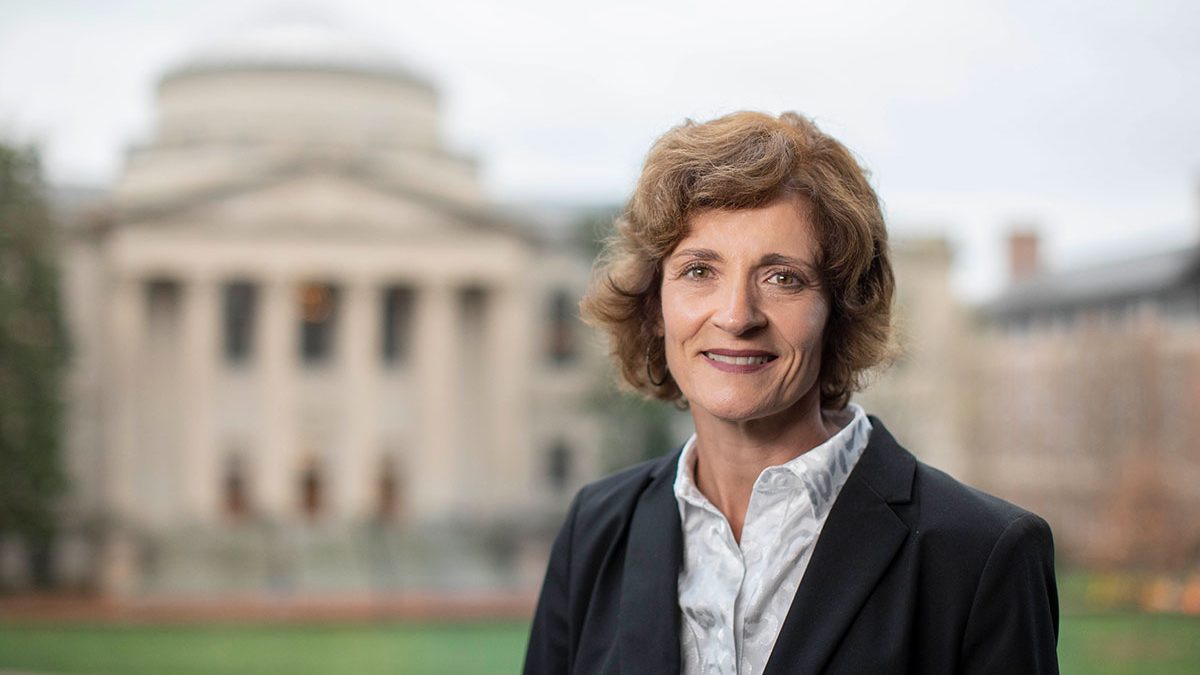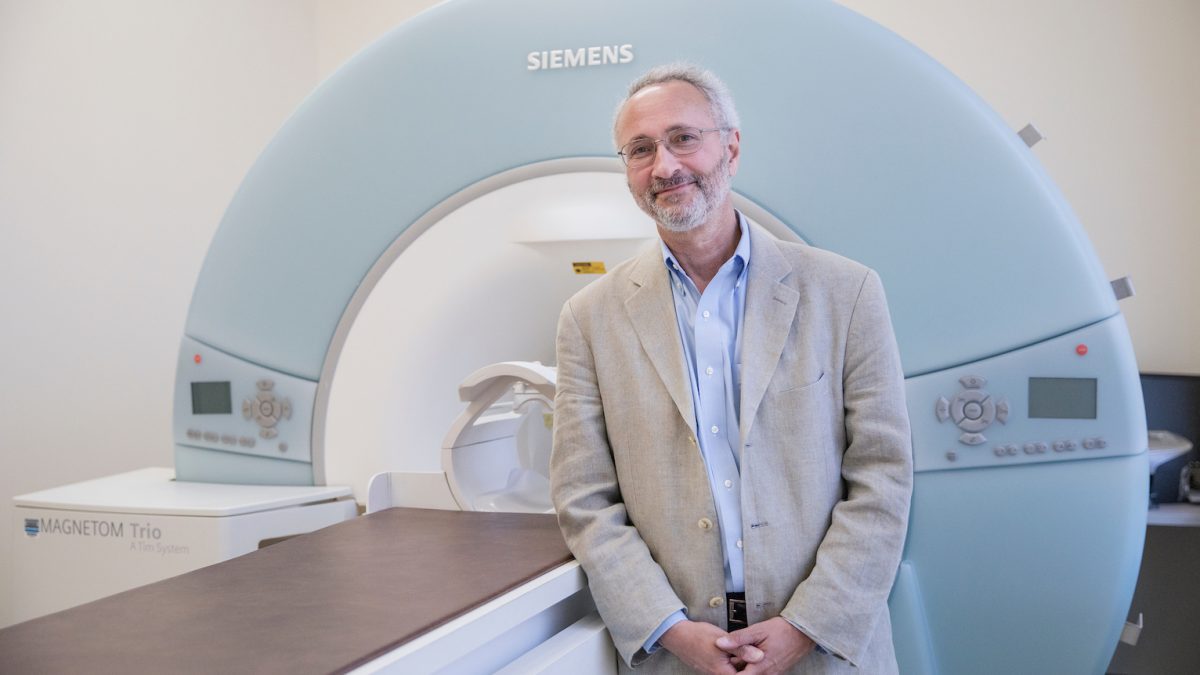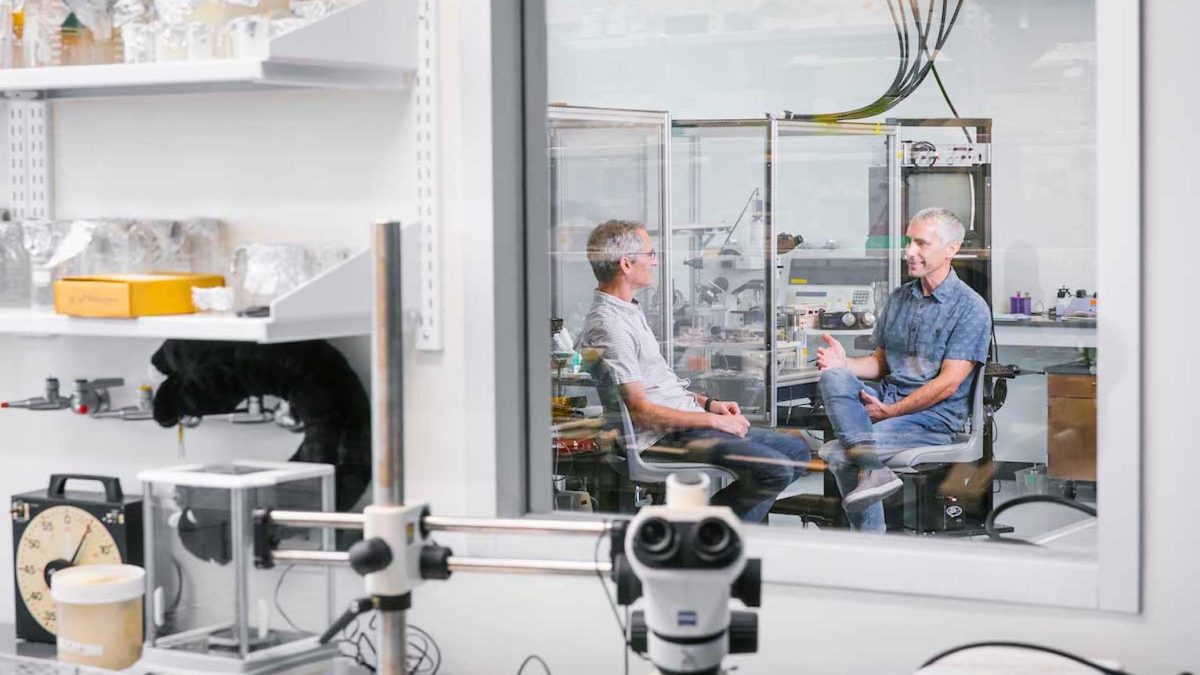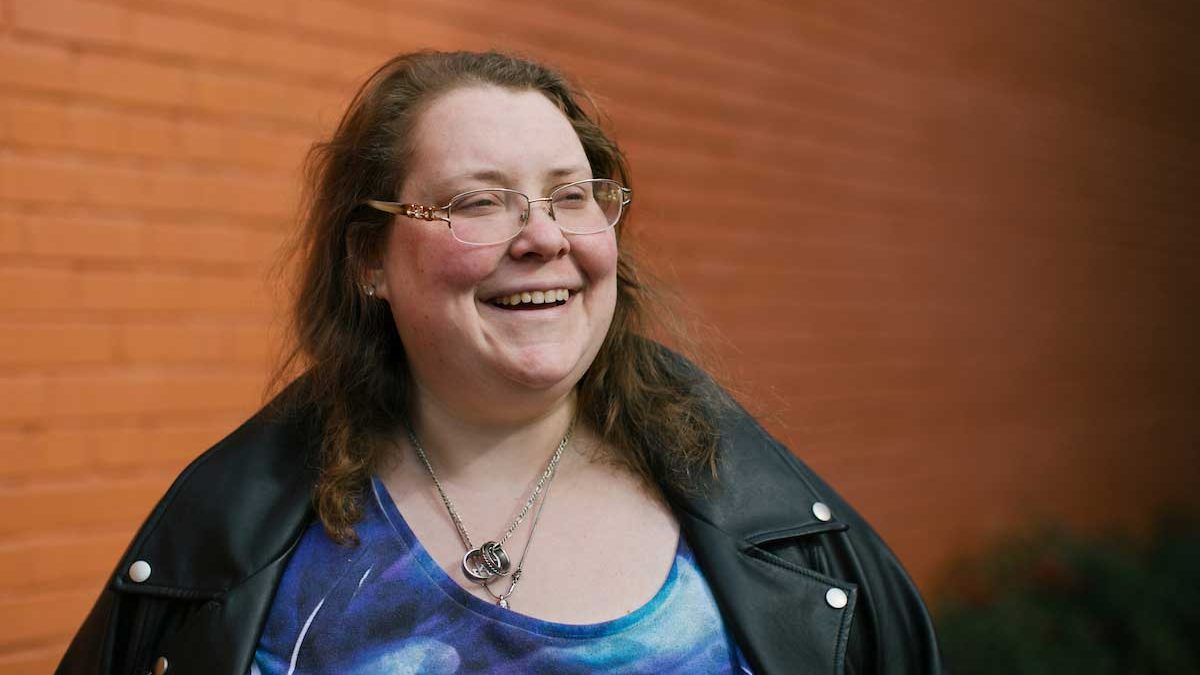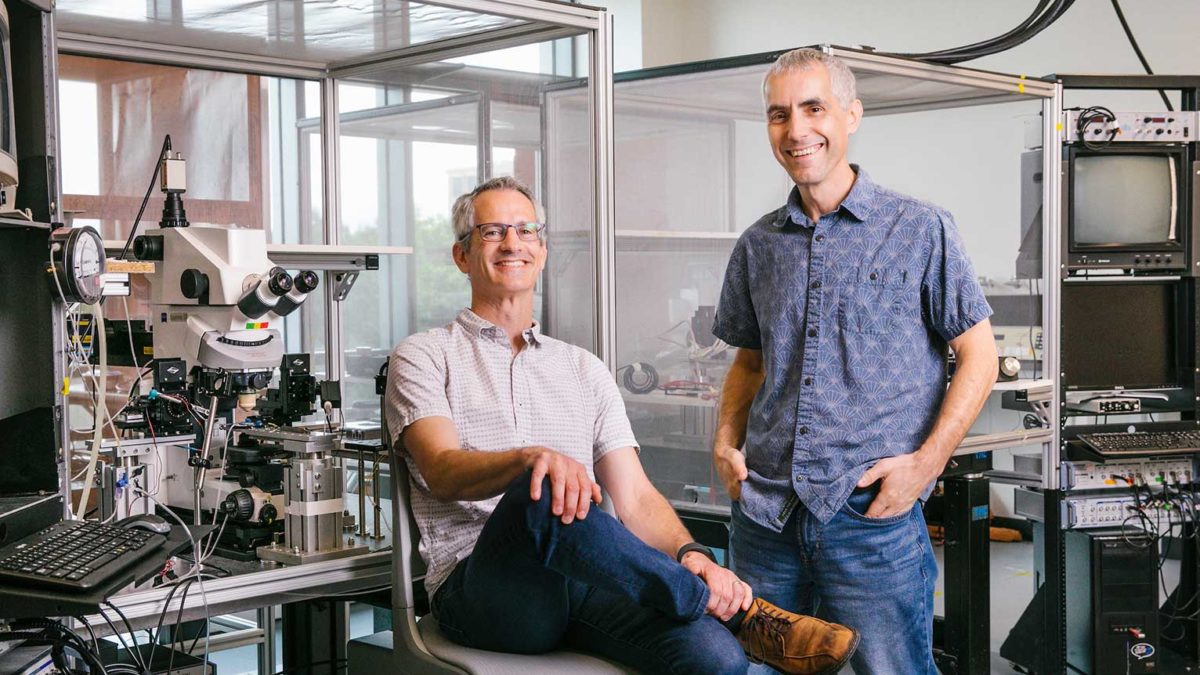Breakthroughs in Early Intervention
Researchers work to find new and more accessible ways to detect and treat autism earlier.
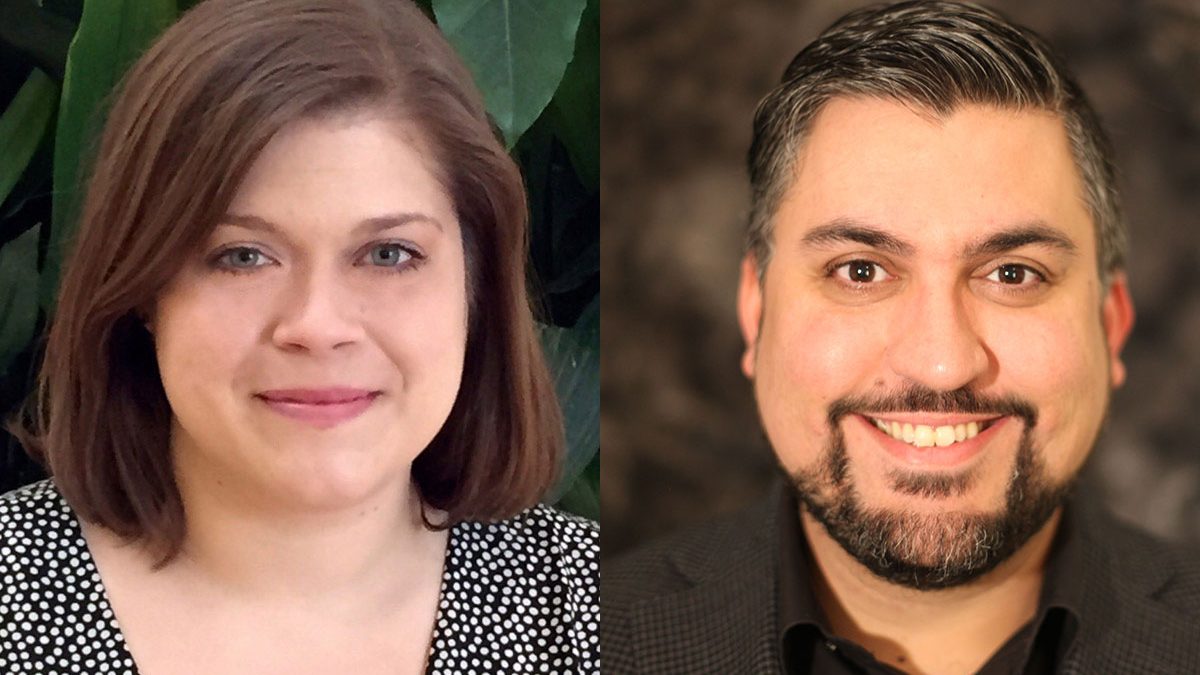
Researchers work to find new and more accessible ways to detect and treat autism earlier.
Researchers work to find new and more accessible ways to detect and treat autism earlier.
Two researchers in the UNC Department of Psychiatry are testing a new approach that may predict the diagnosis of neurodevelopmental disorders, such as autism, in infants as young as six months.
Assistant Professors Rebecca Grzadzinski, Ph.D., and Jose Rodriguez-Romaguera, Ph.D., are using a method called pupillometry ― measuring changes in pupil dilation — to track how infants react to social stimuli.
Grzadzinski and Rodriguez-Romaguera’s research is supported in part by a pilot grant from NC TraCS, the UNC Neuroscience Center and the UNC Autism Research Center — a pan-university institute dedicated to interdisciplinary research on autism.
For Grzadzinski, autism intervention research is personal. Her interest in autism began when she was in college and her cousin received a diagnosis of autism. Grzadzinski learned more about the subject through a work-study position she had as an undergraduate. Following this experience, she said she was completely enthralled and knew she wanted to pursue autism research and treatment as her career.
Rodriguez-Romaguera’s area of research lies in basic science — more specifically measuring arousal and anxiety-related behaviors in rodents. Grzadzisnki and Rodriguez-Romaguera met at a neuroscience seminar, where after hearing Rodriguez-Romaguera speak, Grzadzinski saw the potential for collaboration.
“Throughout my career I have designed behavioral tasks to study specific behavioral responses,” said Rodriguez-Romaguera. “Rebecca comes from the clinical side, where she understands the full complexity of disorders such as autism. Designing a task that we can apply to children at risk for autism is a combination that has been fruitful.”
Both Grzadzinski and Rodriguez-Romaguera hope that their research will lead to major breakthroughs for early intervention. Their work could allow specialists to easily and affordably screen multiple children and follow up with further treatment. In the long-term, they hope the data collected through their work will allow them to modify an infant’s environment in order to enhance their development if they are likely to develop autism.
“The long-term goal is to understand how social difficulties develop over time,” said Grzadzinski. “If we can identify precursors to later social difficulties earlier in life, we may be able to introduce treatments that result in improved outcomes, ultimately improving the quality of life of individuals with autism.”
One of the biggest impacts Grzadzinski expects their research will have on autistic individuals will be the ability to intervene early. The ability to predict the diagnosis of autism in an infant from a very young age — six months — is a notable improvement from typical diagnosis procedures, which normally don’t note symptoms until after the first year and can’t accurately give a diagnosis until a child’s second or third year. Grzadzinski believes early intervention can improve the quality of life for children with autism and their families, resulting in better functional outcomes and communication abilities for autistic individuals.
“The pilot grant allows us to collect the data we need to apply for additional funding while testing new methods that could be implemented in the autism community,” concluded Grzadzinski.
